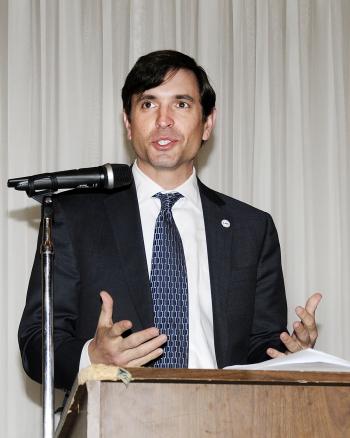
Stephen Waguespack
A Compromised Legacy
Louisiana is a unique state, and that is exactly the way we like it.
Let’s face it; we pride ourselves in being just a little bit different from every other state. We don’t have counties; we have parishes. Our political election primaries are “open” rather than “closed.” Our legal system is based largely upon the Napoleonic Code, as compared to the English Common Law that guided the original legal structure of other states. All of these things, along with our special people, food and culture, make us unique compared to other states. While many will debate the merits of some of these items, for the most part, we wear our uniqueness on our sleeves as a badge of honor.
However, not everything that makes Louisiana unique is a tradition worth keeping. For instance, our culture of excessive lawsuits has not helped our national reputation when it comes to encouraging people and companies to invest in our state. Our rankings on numerous studies show the same result time and time again — the reputation of our legal climate is not good, and that is in large part due to the policies we have passed in this state over the years.
A good example is “legacy lawsuits.” This type of lawsuit is all too common in Louisiana and is typically filed against an oil and gas operator for impact caused by previous operations years ago. In Louisiana, we have hundreds of these cases filed. In Texas, Mississippi, and other neighboring states, the term “legacy lawsuit” is virtually unknown. This unique brand of lawsuit found in Louisiana has slowed down cleanup and damaged the national reputation of our legal system.
Thankfully, Sen. Robert Adley has filed a compromise bill this session to address this unnecessary stain on our legal reputation. The two bills, SB 581 and SB 667, set up a rational process to develop, follow, and implement a feasible cleanup plan that is fair to both operators and landowners. This common sense approach is the product of a compromise by operators and landowners, and once signed into law, will finally put responsible remediation of property ahead of lucrative lawsuits, similar to the process followed in other states. Our unique brand of “legacy lawsuits” does nothing to benefit our national reputation or local culture, and replacing this outlier with a more typical approach will serve us well.
Louisiana has another outlier: the limitation we put on citizens’ right to a jury trial because of a unique law in Louisiana which dictates that civil claims under $50,000 must be decided by a judge. No other state is even close to that type of limitation and our threshold is 28 times higher than the national average. In other states, if you are sued you are most likely able to request a jury of your peers if you so choose.
We support legislation by Rep. Ray Garofalo and Sen. Elbert Guillory, HB 917 and SB 273, to finally reverse this flawed policy decision and give our citizens the right they deserve.
While this may seem like a no-brainer to everyone, there are some in our judicial system who say we are not able to allow for this even though 49 other states can do so. Their argument says we cannot accommodate that much citizen involvement in Louisiana courts without clogging them up.
To address these concerns, it may be helpful to compare Louisiana to a state that is similar to our size, population and demographics. In fact, how about we look at a state that we often compete with for jobs, investments and BCS National Championships — Alabama. In 2012, we played those guys in the national championship game and the result was not a uniquely memorable moment for the purple and gold. As a double whammy, the 2012 scoreboard comparing our judiciary to their judiciary was just as forgettable.
That year, the Alabama court system handled almost 600 more combined civil and criminal jury trials in that state with 92 less judges. No clogging, no backlog. Alabama has a $3,000 threshold for its residents to request a civil jury trial, which in effect, is practically a limitless right to a jury, should a person request it. The Alabama court system had no problems allowing for that fundamental right to a jury with far less referees on the field.
We have a full roster of judges in Louisiana, which makes us more prepared than most to accommodate giving our people this fundamental right. Louisiana has 5.2 judges for every 100,000 people. That is almost double the national average of 2.8. It is higher than Arkansas, Florida, Tennessee, Georgia, Virginia, Texas, Mississippi, Kentucky, South Carolina and, yes, even Alabama. We are well prepared in our judiciary to accommodate jury trials and our people deserve this same right given to fans of all the other SEC schools.
Our uniqueness is what makes us great. It is what makes us who we are. It is why I love calling Louisiana home. But, in a few instances, it is also what holds us back. As we continue to improve our efforts to compete aggressively in the global economy, let’s take the time to do an inventory check. Let’s keep what makes us uniquely great and start taking the steps to do away with what makes us uniquely out of touch.
Stephen Waguespack is president of the Louisiana Association of Business and Industry.
- Log in to post comments
